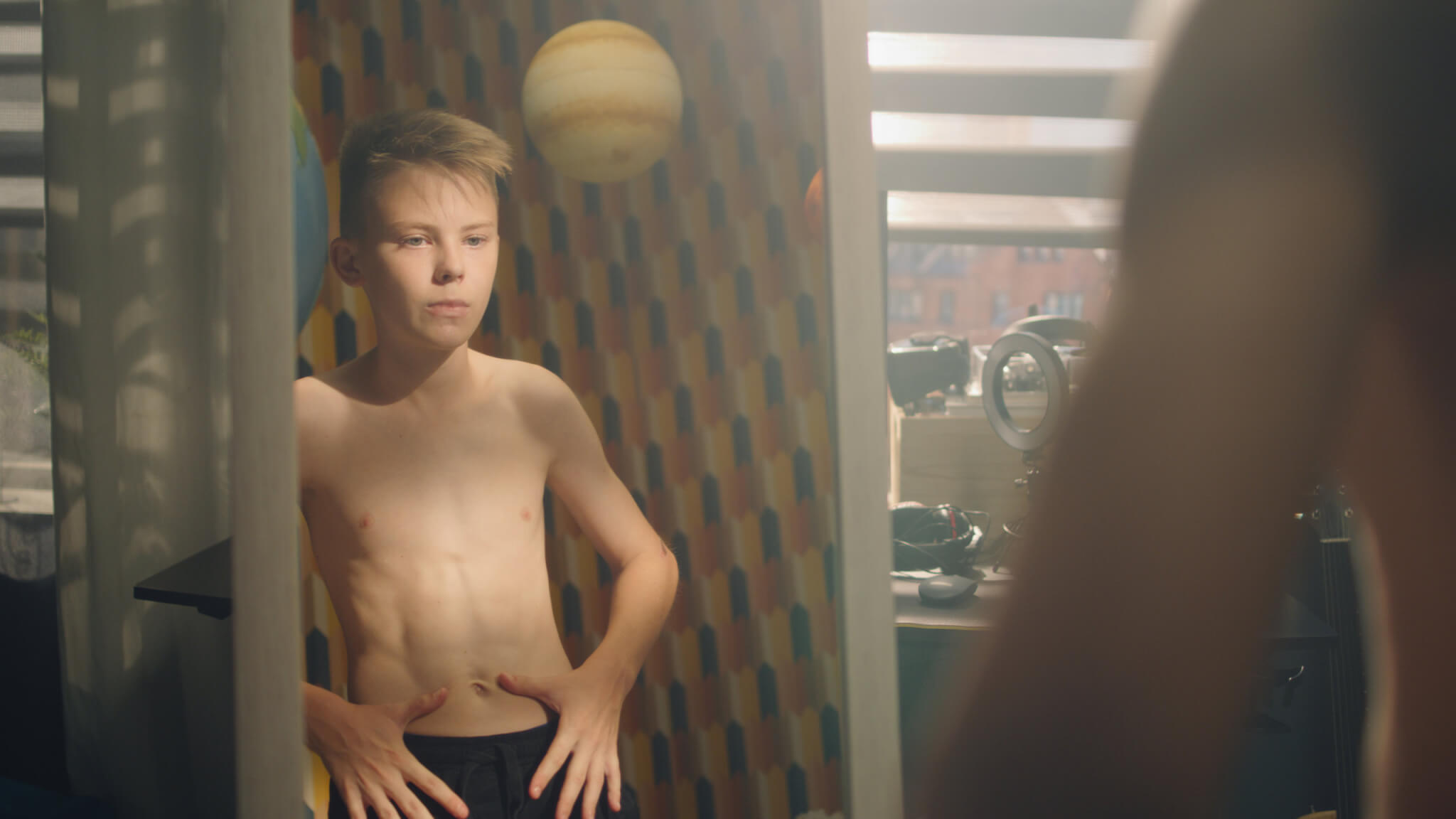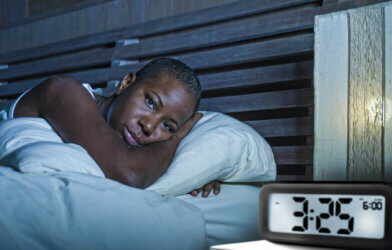TORONTO — Muscle dysmorphia — the feeling that you aren’t muscular enough despite having a healthy physique — may be worsened by poor sleep in individuals who suffer from the condition, a new study suggests. Researchers from the University of Toronto say a good night’s sleep is essential after any workout, but they add that the pursuit of bigger muscles could also have a connection to both less sleep and a tougher time falling asleep in the first place.
Researchers surveyed over 900 adolescents and young adults to reach these conclusions. Those who reported strong symptoms of muscle dysmorphia reported fewer hours of sleep as well as more difficulty falling asleep or staying asleep over half the time during a two-week period.
“Poor sleep can have significant negative impacts for adolescents and young adults, including increased negative mental health symptoms,” says lead author Kyle T. Ganson, PhD, MSW, assistant professor at the University of Toronto’s Factor-Inwentash Faculty of Social Work, in a media release. “Poor sleep among those who experience muscle dysmorphia symptoms is concerning as it may exacerbate the functional and social impairment these individuals commonly report, as well as increase suicidal thoughts and behaviors.”

Past studies suggest that, on average, adolescents and young adults sleep less than the recommended seven to 10 hours per night. Meanwhile, many studies find poor sleep is a marker of mental health diagnoses and shows a clear association with symptoms including anxiety, depression, and psychosis. Prof. Ganson and his colleague’s study is among the first to investigate the relationship between sleep and muscle dysmorphia specifically.
Study authors theorize the mechanisms connecting greater muscle dysmorphia symptomatology and poor sleep exhibit a multifaceted nature. People with greater intolerance for their own appearance, who engage in obsessive thinking, and experience anxiety related to their body and muscularity may experience impaired sleep. For others, exercise may interfere with sleep. For example, if an individual engages in muscle-building exercise during the evening hours to avoid interfering with their job responsibilities.
“Individuals experiencing symptoms of muscle dysmorphia may be more likely to use and consume dietary supplements that are marketed for improving workouts, increasing muscle mass, and accelerating muscle recovery,” Prof. Ganson explains. “These products tend to have high levels of caffeine or other stimulants which may negatively impact sleep. In addition, anabolic-androgenic steroids, which are commonly used among people with muscle dysmorphia, have also been shown to negatively impact sleep.”
The study authors stress the need for healthcare professionals to be aware of these findings considering the continued societal emphasis placed on the muscular body ideal and pursuits of muscularity among modern day adolescents and young adults. Moreover, future research is necessary in order to continue exploring the connection between muscle dysmorphia symptoms and poor sleep.
The study is published in the journal Sleep Health.
Correction: An earlier version of this suggested that poor sleep could lead to muscle dysmorphia in adolescents and young adults. The article has been updated to show that the study concludes that individuals who suffer from muscle dysmorphia are more likely to struggle with poor sleep habits.




This article completely misrepresents the conclusions of the study, which does NOT say that poor sleep leads to muscular dysmorphia. Rather, the study concludes that there appears to be a correlation between the two, and that muscular dysmorphia can lead to poor sleep, not vice versa.
“ The relationship between muscle dysmorphia symptomatology and poor sleep may be explained by multiple mechanisms including (1) obsessive rumination around one’s body, a core symptom of muscle dysmorphia, may disrupt sleep by inducing a state of mental and physiological hyperarousal whereby persistent overthinking may activate the body’s stress response, which may in turn delay the onset of sleep and decrease sleep quality11, 14; (2) large amounts of time dedicated to the pursuit of muscularity (eg, exercise), possibly at hours near bedtime or early in the morning, may disrupt sleep due to heightened physiological arousal (eg, increased heart rate and core body temperature)15, 16; and (3) irregular eating patterns, including late-night eating or ingesting stimulant-containing dietary supplements, and energy imbalances can also negatively affect sleep patterns.14, 17, 18 Therefore, the aim of this study was to determine the association between muscle dysmorphia symptomatology and sleep duration and quality. It was hypothesized that those with greater symptoms of muscle dysmorphia would report fewer hours of sleep per night and greater difficulty falling or staying asleep.”